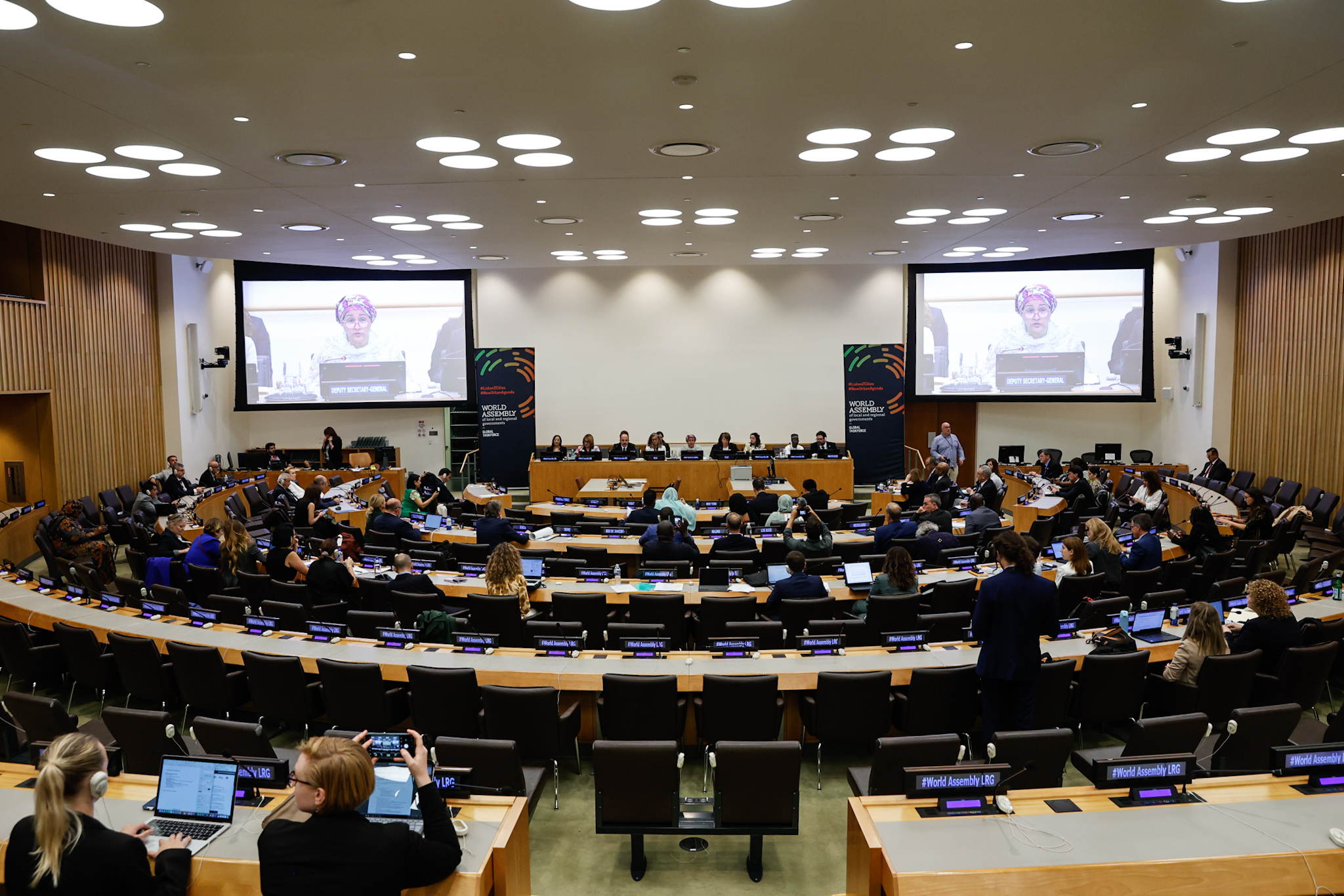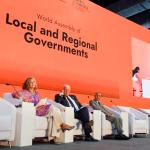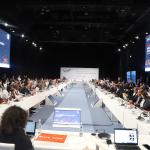
As the international community gathered at the United Nations Headquarters, the World Assembly of Local and Regional Governments sessioned to deliver a powerful message to the global stage. The Assembly, which took place on September 19th, was marked by a strong commitment to reshaping the United Nations' multilateral system to better reflect the voices and realities of local and regional governments around the world.
The World Assembly featured a diverse and distinguished lineup of delegates, representing cities and regions from every corner of the globe. From the opening remarks by the United Nations Deputy Secretary-General to contributions from Konya (Türkiye) and Malmö (Sweden), the event showcased the unwavering resolve of local leaders to drive transformative change. The message was clear: the future of global governance must include those who are closest to the people if it wants to be able to deliver for a sustainable future for present and future generations.
The first sessions of the day, chaired by representatives from Rabat (Morocco) Mopti (Mali) and Montevideo (Uruguay), explored the themes of digital futures, peaceful and sustainable futures, respectively. Amman (Jordan) and Alicante (Spain) highlighted the critical role of digital innovation in enhancing local governance, while Grigny (France) and Dagana (Senegal) underscored the importance of peacebuilding and inclusion at the community level. Their discussions called on bridging the digital divide and promoting social cohesion as foundational pillars for sustainable development.
In a bold and impassioned statement, the World Assembly reaffirmed its commitment to the principles of the United Nations’ “Our Common Agenda.” Local and regional leaders called for the establishment of a structured institutional mechanism within the UN to ensure that their voices are not only heard but integrated into global decision-making processes. The self-organised constituency of local and regional governments called to be seen as full political actors in their own right.. "If we want to achieve sustainable development, we need to ensure it happens for the benefit of all through a renewed networked multilateral system," read the statement. "This is what we are asking of the new multilateralism: recognizing the united allied voice of the organized constituency of local and regional governments."
The sessions brought together a range of perspectives on enhancing collaboration between the UN and local governments. Chaired by Nouakchott (Mauritania), representatives from Paris (France), Montreal (Canada), Belize City (Belize), and Pichincha (Ecuador) shared their experiences and innovative solutions for sustainable urban development. Their stories were a testament to the power of local action in addressing global challenges.
Delegates emphasized the need for direct engagement with the organized constituency to achieve the 2030 Agenda for Sustainable Development. They called for the reform of the global financial architecture to provide better access to financing for local governments and to support investment in local public services. "Localization will impact the lives and livelihoods of millions of human beings, but it is also a political process that aims to bring the voices of these people to the forefront," the Assembly declared.
The panel around "Enhancing a Seat at the Table," chaired by Kitchener (Canada). Participants from Cobija (Bolivia), Soria (Spain), Banjul (The Gambia), and Fort Collins (USA) made a compelling case for the formal and permanent recognition of local governments within the UN system. They argued that local governments are not just implementers of global policies but co-creators of solutions that are critical to achieving the Sustainable Development Goals (SDGs).
"Multilateral organizations need to work hand-in-hand with local and regional governments towards the good of our planet and the wellbeing of all people, this needs to be the cornerstone of the multilateralism that we seek."
In the closing session, facilitated by the Commonwealth Local Government Forum, the mayor of Utrecht, together with representatives from UN Agencies (UN-Habitat, the UN Women National Gender Youth Advocate), a representative from the Legal Pact for the Future emphasized the importance of changing the multilateral perspective to include young people, their integral role in policymaking and laid out possible opportunities for youth engagement in upcoming milestones. Their voices resonated with the urgency of addressing climate change, social justice, and human rights.
The World Assembly's statement was not just a call for inclusion but a demand for systemic change. "The protection of our planet, ecosystems, and commons, while prioritizing dignity and equality, must guide our work for current and future generations," the statement emphasized. "We cannot be seen only as mere implementers of the goals. We are co-creators of global solutions and essential allies for hope in these polarized times."
The Assembly pledged to champion transformative climate action, promote gender equality, and advocate for a new social contract that is people-centered and rights-driven. They also called for a renewed era of diplomacy that fosters peace, cooperation, and solidarity between communities, reinforcing city and territorial diplomacy, democratic participation, and human rights.
The World Assembly of Local and Regional Governments ended on a hopeful note, with a commitment to continue advocating for their formal inclusion within the United Nations system. The Assembly extended its gratitude to the co-facilitators, Germany and Namibia, and called on all Member States to support their cause. As the UN prepares for the Summit of the Future, the organized constituency of local and regional governments stands united, ready to shape a new multilateralism that truly reflects the needs and aspirations of communities worldwide.
The message was clear: it is time for a renewed partnership between global and local governance—a partnership that acknowledges the critical role of local governments in building a just, sustainable, and resilient future for all.



